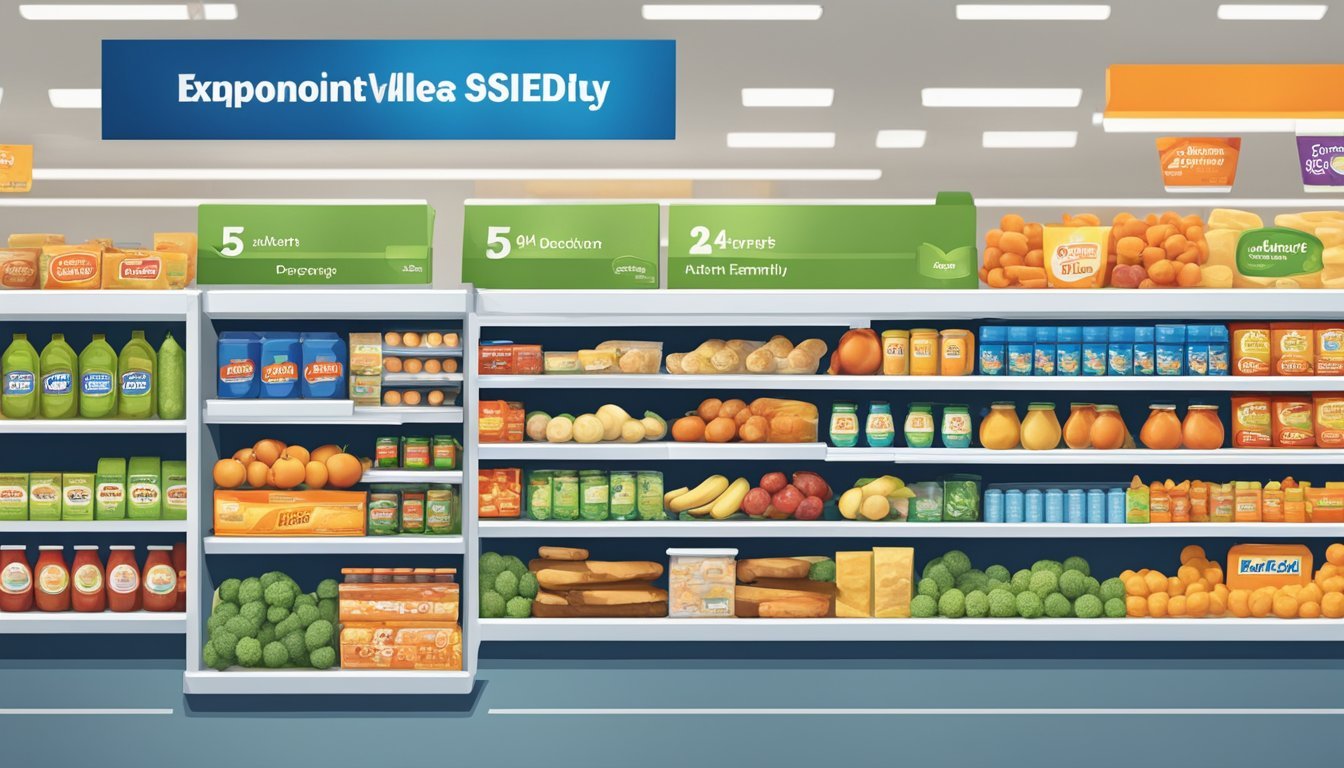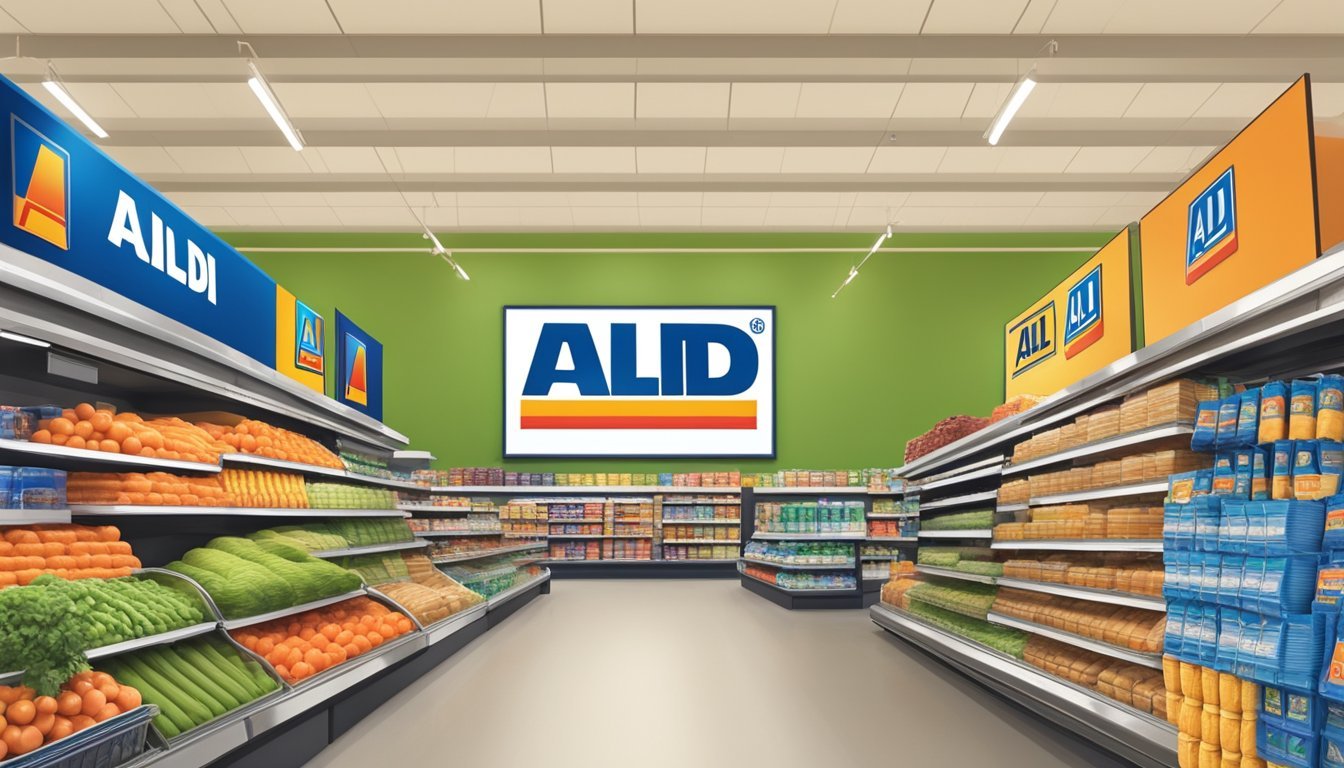Is Aldi Cheaper Than Family Dollar?
A Price Comparison Analysis
Aldi and Family Dollar are two popular discount retailers in the US, known for offering affordable products to budget-conscious shoppers. When it comes to groceries, many consumers wonder which store provides better value for their money.
Aldi generally offers lower prices on most grocery items compared to Family Dollar. While Family Dollar carries a variety of household goods and some food products, Aldi specializes in groceries and has a more extensive selection of fresh produce, meats, and pantry staples.
Aldi's cost-saving strategies, including limited store hours, efficient operations, and a focus on private-label brands, allow them to maintain competitive prices. However, it's worth noting that Family Dollar may occasionally have better deals on specific items or during sales events, so savvy shoppers can benefit from comparing prices between the two stores for their particular needs.
Understanding Grocery Retail
Grocery retail encompasses a diverse landscape of stores catering to shoppers' food and household needs. Supermarkets, discount grocers, and dollar stores compete for customers' attention and loyalty.
Traditional supermarkets offer a wide selection of products, including fresh produce, meats, and name-brand items. These retailers often provide a more extensive shopping experience with larger stores and additional services.
Discount grocers like Aldi focus on offering lower prices by limiting product variety and emphasizing private-label brands. They typically have smaller stores and fewer frills to keep costs down.
Dollar stores have expanded their grocery offerings in recent years. These retailers aim to provide convenience and affordability, particularly in areas with limited access to full-service supermarkets.
Shoppers' preferences vary based on factors such as price, quality, and convenience. Some prioritize savings, while others value product selection or shopping experience.
Retailers employ different strategies to attract customers:
Loss leaders: Offering popular items at low prices to drive foot traffic
Private labels: Developing store brands to provide cheaper alternatives
Loyalty programs: Rewarding repeat customers with discounts or points
The grocery retail landscape continues to evolve, with online shopping and delivery services gaining popularity. This shift challenges traditional brick-and-mortar stores to adapt and innovate.
Price Comparison
Aldi and Family Dollar offer competitive pricing, but their strategies differ. Store brands, product selection, and packaging sizes all play a role in determining which retailer provides better value for shoppers.
Comparative Analysis of Aldi and Family Dollar Prices
Aldi generally offers lower prices on groceries compared to Family Dollar. A basket of common items at Aldi typically costs 10-15% less than at Family Dollar. For example, a gallon of milk at Aldi may be priced at $2.79, while Family Dollar charges $3.25. Aldi's focus on store brands allows them to keep costs down.
Family Dollar, however, often has better deals on household items and personal care products. A bottle of shampoo might cost $2.50 at Family Dollar, but $3.00 at Aldi. The price gap narrows when comparing Aldi to Family Dollar's store brand options.
Produce prices fluctuate, but Aldi usually wins in this category. A pound of bananas at Aldi might cost $0.49, compared to $0.69 at Family Dollar.
Influence of Store Brands on Pricing
Store brands significantly impact pricing at both retailers. Aldi's lineup consists primarily of private label products, allowing for consistent low prices. Their Millville cereal brand, for instance, costs about 30% less than name-brand equivalents.
Family Dollar offers a mix of name brands and their store brand, Family Gourmet. While Family Gourmet items are priced competitively, they don't always match Aldi's low prices. A box of Family Gourmet crackers might cost $2.00, while Aldi's comparable product is $1.79.
Name-brand items at Family Dollar are often pricier than Aldi's store-brand alternatives. This difference can range from 20-40% on many products.
The Impact of Bulk Purchases and Packaging
Packaging sizes affect pricing strategies at both stores. Aldi often offers larger packages, providing better value for bulk buyers. A 5-pound bag of flour at Aldi might cost $1.89, while Family Dollar sells a 2-pound bag for $1.50.
Family Dollar focuses on smaller package sizes, catering to customers who prefer to buy in smaller quantities or have budget constraints. This approach can result in a higher per-unit cost but a lower out-of-pocket expense.
Aldi's bulk options typically offer the best value. A 64-ounce bottle of apple juice at Aldi might cost $1.89, while Family Dollar sells a 32-ounce bottle for $1.25. The larger size at Aldi provides nearly 50% more product for only a slightly higher price.
Product Variety and Selection
Aldi and Family Dollar offer distinct product assortments to cater to different customer needs. Their selections vary in terms of grocery staples, fresh items, and non-food products.
Assortment of Grocery Items
Aldi provides a focused selection of around 1,400 items, emphasizing quality and value. The store stocks a range of fresh produce, meats, dairy, and frozen foods. Aldi's produce section features seasonal fruits and vegetables at competitive prices. The meat department offers both fresh and frozen options, including chicken, beef, and pork. Dairy products like milk, cheese, and yogurt are readily available.
Aldi also carries a variety of canned goods, pasta, sauces, and shelf-stable items. Their private-label brands cover most grocery categories, often at lower prices than national brands. The store's rotating "Aldi Finds" section introduces limited-time specialty products.
Availability of Non-Grocery Items
Family Dollar provides a broader range of non-grocery items compared to Aldi. The store stocks household essentials, cleaning supplies, and personal care products. Customers can find basic clothing items, accessories, and seasonal decor at Family Dollar.
Family Dollar's selection includes school supplies, toys, and small electronics. The store also offers a variety of health and beauty products. While Family Dollar's grocery selection is more limited, they do carry some pantry staples, snacks, and beverages.
Aldi's non-grocery selection is smaller but includes household necessities, cleaning products, and occasional special buys like clothing or kitchen gadgets. Both stores aim to provide affordable options for everyday needs.
Quality and Brand Comparison
Aldi and Family Dollar offer different approaches to product quality and branding. These differences impact consumer perception and value for money.
Analysis of Name-Brand versus Private-Label Quality
Aldi focuses heavily on private-label products, with over 90% of its inventory being store brands. These items often match or exceed the quality of national brands at lower prices. Family Dollar, in contrast, carries a mix of name brands and private labels.
Aldi's exclusive brands like Clancy's and Millville undergo rigorous testing to ensure quality. Many consumers find these products comparable to national brands like Kraft or General Mills. Family Dollar's private labels, such as Family Gourmet, aim to offer value but may not always match Aldi's quality standards.
Name brands at Family Dollar can provide familiarity and consistency. However, they typically come at a higher price point compared to Aldi's private-label alternatives.
Effect of Private Labels on Consumer Perception
Private labels significantly influence how shoppers view store value. Aldi's emphasis on store brands creates a perception of affordability without sacrificing quality. This strategy has helped build customer loyalty and trust in Aldi's products.
Family Dollar's mix of private labels and name brands offers more choice. Some consumers prefer this variety, especially those loyal to specific national brands. However, this approach may not convey the same consistent value message as Aldi's private-label focus.
Store brands at both retailers allow for price comparisons with competitors like Walmart, Target, and Kroger. Aldi's private labels often emerge as more cost-effective, reinforcing its reputation for savings.
Consumer Experience
Aldi and Family Dollar offer distinct shopping experiences that cater to different customer needs and preferences. Their approaches to store layout, product selection, and checkout processes impact how consumers interact with each retailer.
Shopping Environment and Store Layout
Aldi stores feature a compact, no-frills design focused on efficiency. The smaller footprint allows for quicker shopping trips. Products are displayed in their original shipping boxes, reducing labor costs and keeping prices low.
Family Dollar offers a more traditional discount store layout. Stores are typically larger than Aldi, providing a wider selection of merchandise beyond groceries. Aisles are organized by department, making it easier to browse for specific items.
Both chains prioritize value, but Aldi's minimalist approach contrasts with Family Dollar's fuller shelves and variety of non-food products. Aldi's limited assortment of carefully curated items simplifies decision-making for shoppers.
Checkout Process and Bagging Policies
Aldi's checkout system is designed for speed and cost-effectiveness. Cashiers scan items quickly, and customers bag their own groceries at a separate counter. This system keeps lines moving and reduces labor expenses.
Aldi charges for bags, encouraging customers to bring their own or reuse boxes. Family Dollar provides free bags and offers assistance with bagging, aligning with more conventional grocery store practices.
Family Dollar's checkout process is more traditional, with cashiers bagging items as they scan. This approach may be preferable for customers who value convenience over speed or cost savings.
Both retailers accept various payment methods, including cash, debit, and credit cards. Aldi has historically been cash-only but has expanded payment options in recent years to improve customer convenience.
Financial Factors Impacting Prices
Inflation and operational costs play crucial roles in determining grocery prices at retailers like Aldi and Family Dollar. These factors influence pricing strategies and affect consumers' purchasing power.
Effect of Inflation on Grocery Pricing
Inflation has significantly impacted grocery prices across the board. In August 2023, grocery prices nationwide increased by 13.5% compared to the previous year. This price surge affected both discount stores and traditional supermarkets.
Discount chains like Aldi and Family Dollar are not immune to inflationary pressures. However, their business models allow them to mitigate some impacts. Aldi's focus on private-label products helps maintain lower prices compared to name brands.
Family Dollar, as a dollar store, faces challenges in maintaining its low-price image. Some dollar stores have raised prices at a higher rate than other grocery retailers to cope with rising costs.
Labor Costs and Operational Efficiencies
Labor expenses significantly impact retail pricing. Aldi's efficient operational model contributes to its ability to offer lower prices. The chain employs fewer staff per store and uses strategies like cart rental systems to reduce labor needs.
Aldi stocks around 2,000 items compared to the wider variety found in traditional supermarkets. This limited inventory approach reduces management costs and allows for more competitive pricing.
Family Dollar's operational model differs from Aldi's. As a dollar store, it focuses on a wider variety of low-cost items. This approach can lead to higher inventory management costs, potentially impacting prices.
Both retailers continually seek operational efficiencies to maintain competitive pricing in the face of rising labor costs and other expenses.
Consumer Savings
Shoppers can find significant savings at both Aldi and Family Dollar. Each store offers unique opportunities for budget-conscious consumers to stretch their dollars further.
Tips for Maximizing Savings at Aldi and Family Dollar
At Aldi, focus on their private-label products, which often match or exceed the quality of name brands at lower prices. Shop during Aldi Finds events for special deals on rotating products. Bring your own bags to avoid bag fees.
For Family Dollar, check their weekly ad for sales and use their Smart Coupons program. Look for clearance items, typically marked with yellow tags. Buy in bulk when prices are low on non-perishable items you use frequently.
Both stores offer mobile apps with exclusive discounts. Compare unit prices rather than package prices to ensure you're getting the best deal. Consider store locations - choosing the closer option can save on transportation costs.
The Role of Promotions and Discounts
Aldi runs regular promotions on seasonal items and fresh produce. Their Aldi Savers program highlights weekly specials on various products. The store rarely offers traditional coupons but compensates with consistently low prices.
Family Dollar provides more conventional sales and coupons. Their Smart Coupons digital platform allows customers to clip coupons and apply them at checkout. The store also offers a $5 off $25 purchase coupon periodically.
Both retailers have loyalty programs that reward frequent shoppers. Aldi's program is less extensive but still offers perks. Family Dollar's program provides more targeted discounts based on shopping habits.
Timing purchases around these promotions can lead to substantial savings. Holidays often bring additional discounts at both stores, particularly on seasonal items.
Market Position and Brand Strategy
Aldi and Family Dollar occupy distinct positions in the retail landscape, targeting different segments of budget-conscious shoppers. Their strategies reflect unique approaches to providing value and catering to specific consumer needs.
Aldi's Position in the Discount Grocery Market
Aldi has carved out a strong niche in the discount grocery sector. The company focuses on offering a curated selection of private-label products at low prices. This strategy allows Aldi to maintain tight control over quality and costs.
Aldi's stores are typically smaller than traditional supermarkets, with a no-frills layout that reduces overhead. The brand emphasizes efficiency, passing savings onto customers. This approach has resonated with shoppers seeking quality groceries at competitive prices.
In recent years, Aldi has expanded its fresh produce and organic offerings to appeal to health-conscious consumers. The company's growth in the U.S. market has been substantial, challenging established supermarket chains and other discount retailers.
Family Dollar's Role in the Dollar Store Segment
Family Dollar operates within the dollar store category, competing directly with Dollar General and Dollar Tree. These stores cater to consumers looking for everyday essentials at low prices.
Unlike Aldi's focus on groceries, Family Dollar offers a broader range of categories, including household items, personal care products, and seasonal goods. The company's stores are often located in urban and rural areas, serving communities with limited retail options.
Family Dollar's strategy involves a mix of national brands and private-label products. This approach provides customers with recognizable names alongside budget-friendly alternatives. The company has faced challenges in recent years, including increased competition and operational issues.
Family Dollar's parent company, Dollar Tree, has implemented initiatives to improve store performance and streamline operations. These efforts aim to strengthen Family Dollar's position in the competitive dollar store market.







